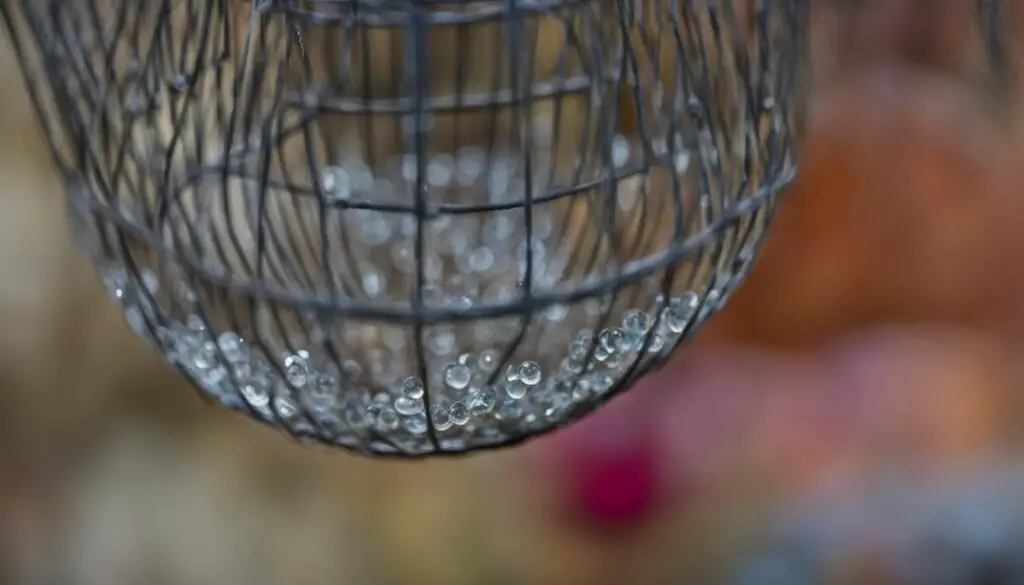As a hamster owner, you want the best for your furry friend. You provide them with a cozy habitat, nutritious food, and plenty of toys to keep them entertained. But have you ever wondered if your hamster is getting enough water?
Water is an essential part of a hamster’s diet. It helps with digestion, regulates body temperature, and keeps their organs functioning properly. Monitoring your hamster’s water consumption is crucial to ensure their well-being.
So, how can you tell if your hamster is drinking enough water? Let’s explore some signs that can help you determine if your hamster is staying hydrated.
In this article, we will cover the various signs of a dehydrated hamster, reasons why your hamster might not be drinking water, and what you can do to ensure they are getting enough hydration. Whether you’re a new hamster owner or have had your furry friend for a while, this information will help you understand the importance of water in your hamster’s life.
Reasons Your Hamster Might Not be Drinking Water
Monitoring your hamster’s water intake is essential to ensure their hydration. However, there are various reasons why your hamster might not be drinking water.
One common reason is the adjustment to a new environment. When your hamster is introduced to a new cage or a different location, they might initially feel stressed or anxious, which can affect their drinking habits.
Stress is another factor that can impact your hamster’s water consumption. Loud noises, excessive handling, or changes in their daily routine can cause stress, leading to a decrease in water intake.
Sickness can also contribute to a hamster’s reduced desire to drink water. Just like humans, hamsters may lose their appetite and have decreased thirst when they are unwell. It’s essential to monitor their overall behavior and consult a veterinarian if you suspect your hamster is sick.
A malfunctioning water bottle can prevent your hamster from accessing water. Check the bottle’s nozzle and make sure it is not clogged or leaking. Additionally, ensure that the water level in the bottle is sufficient for your hamster’s needs.
The taste of water can also affect hamsters’ drinking habits. If your tap water has a strong or unpleasant taste, it may discourage your hamster from drinking. Consider providing filtered or bottled water to see if it makes a difference.
Lastly, hamsters have a unique diet that may contain high water content foods such as fruits and vegetables. If your hamster consumes a significant amount of these foods, their need for additional water intake may be reduced.
Signs of Dehydration in Hamsters
Dehydration can be a serious issue for hamsters. It is important to recognize the signs of dehydration early on to prevent further complications. Some common signs of dehydration in hamsters include:
- Dull and sunken eyes
- Ruffled fur
- Reduced grooming
- Lethargy
- Concentrated urine
Monitoring your hamster’s hydration is crucial for their well-being. If you notice any of these signs, it’s important to take immediate action to rehydrate your pet. Providing fresh and clean water is essential for preventing hamster dehydration.
How to Ensure Your Hamster is Drinking Water
To make sure your furry friend stays hydrated, it’s essential to take specific steps to ensure your hamster is drinking enough water. By following these guidelines, you can be confident in their water supply and keep them healthy and happy.
Regularly Check the Water Bowl or Bottle
One of the crucial aspects of ensuring your hamster’s water intake is to regularly check their water bowl or bottle. Make sure it is clean, free from debris, and functioning correctly. Replace the water daily to provide fresh, clean water for your hamster.

Monitor Your Hamster’s Behavior
Pay attention to your hamster’s behavior and look for any signs of dehydration. If they are showing signs of lethargy, reduced grooming, or have a decrease in urine output, it could indicate they are not getting enough water. Observing their behavior can help you take appropriate action.
Encourage Water Consumption
If you notice that your hamster is not drinking enough water, you can try to encourage them by offering water-rich foods, such as fruits and vegetables. Additionally, you can provide alternative water sources, like a shallow water dish or a different type of water bottle, to see if they prefer it.
By implementing these measures, you can ensure that your hamster is drinking water and help prevent dehydration, ensuring their well-being and overall health.
Training Your Hamster to Drink Water
It can be frustrating when your hamster is not familiar with using a water bottle, but with a little training, you can encourage them to drink water effortlessly. One effective method involves using a small amount of peanut butter on the spout of the water bottle. The enticing smell and taste of the peanut butter will motivate your hamster to lick it, eventually discovering the water source. This technique helps them associate the water bottle with a positive experience, encouraging them to use it regularly.
If your hamster is still struggling to use the water bottle, you can consider providing a water bowl as an alternative. Some hamsters find it easier to drink from a bowl rather than a bottle. Ensure the water in the bowl is clean and fresh, and keep an eye on your hamster’s water consumption to ensure they are staying hydrated.
When to Seek Veterinary Care
If you have tried various methods to encourage your hamster to drink water and they are still not drinking, or if you notice other signs of illness, it is important to seek veterinary care. A veterinarian can assess the situation and provide appropriate treatment if necessary.
Hamsters not drinking enough water can be a cause for concern as it may indicate an underlying health issue. Dehydration can lead to serious complications and can be especially dangerous for small animals like hamsters.
If your hamster is consistently refusing to drink water, it could be a sign of sickness. Some health conditions can cause hamsters to lose their appetite and become less interested in drinking. It’s essential to monitor your hamster’s behavior and overall well-being closely.
Additionally, if you notice any other signs of illness such as weight loss, changes in fur quality, lethargy, or abnormal behavior, it’s crucial to consult a veterinarian. These symptoms could indicate a broader health problem that requires professional attention.
Remember, as a responsible pet owner, it’s important to advocate for your hamster’s health and well-being. Seeking veterinary care when necessary can help ensure that your furry friend receives the proper treatment and support they need to recover and thrive.
Importance of Water for Hamsters
Water plays a critical role in the health and well-being of your hamster. Adequate water consumption is essential for several reasons. Firstly, it aids in digestion, ensuring that food is properly broken down and nutrients are absorbed efficiently. Secondly, water helps to support kidney function, allowing the body to eliminate waste products effectively. Lastly, water helps regulate your hamster’s body temperature, keeping them cool and preventing overheating.
To prevent dehydration in hamsters, it is vital to provide them with clean and fresh water at all times. Make sure to regularly check their water bottle or bowl, ensuring that it is clean and functioning properly. Clean water containers prevent the growth of bacteria and algae, ensuring a safe water source for your furry friend. Additionally, remember to refill the water container daily to ensure a constant supply of fresh water.
Monitoring your hamster’s water consumption is crucial. Keep an eye on their water levels to ensure they are drinking enough. If you notice a significant decrease in their water intake or signs of dehydration, such as sunken eyes or lethargy, it is important to take action promptly. Dehydration in hamsters can lead to serious health complications, so it is essential to address the issue proactively.
By prioritizing your hamster’s water intake and taking steps to prevent dehydration, you can ensure their overall well-being and promote their good health. Remember, a hydrated hamster is a happy and healthy companion!
